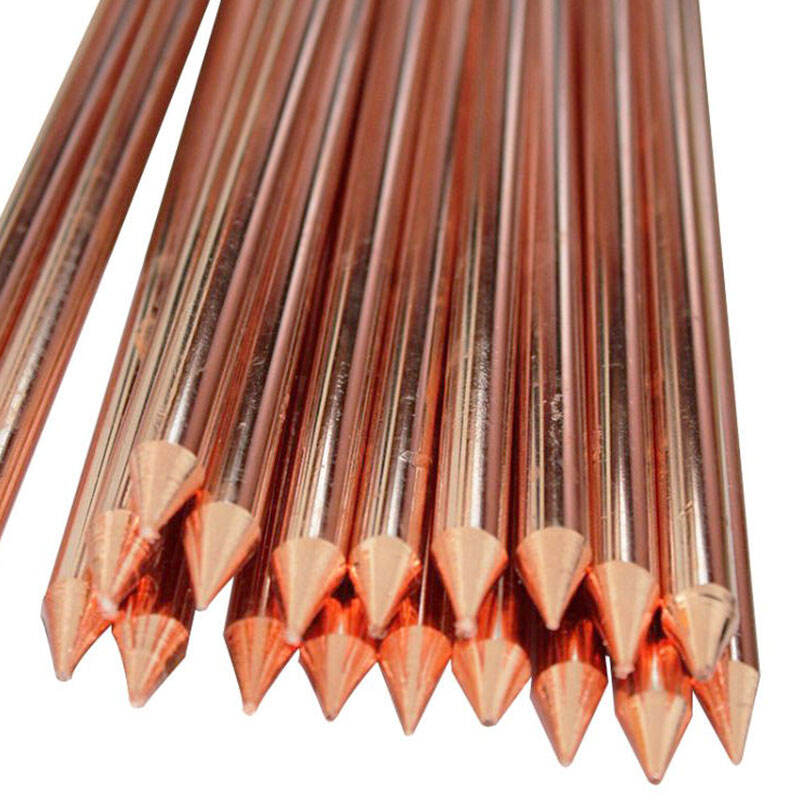泥 の 棒 は 固い 銅 で ある か
 泥 の 棒 は 固い 銅 で ある か
泥 の 棒 は 固い 銅 で ある か
接地 システム に つい て は",接地 棒 は 固い 銅 で ある の か"と いう 質問 が よく 起き ます. 接地棒は,電気電流を安全に地球に導いて,電気の安全を確保するために重要です. 銅 は 粉砕 棒 の ために 広く 使われる 材料 で ある が,粉砕 棒 の すべて が 固い 銅 で でき て いる の は あり ませ ん. 銅結合鋼は 費用対効果の高い代替品ですが 固体銅の性能は 低くなっています
固い 銅 の 床 棒 は 何 です か
固体銅の床棒は完全に銅でできている. 銅 は 非常 に 導電性 が 強く,腐食 に 耐える 特性 で,接地 システム に は 優れた 選択 です. 固い銅製の床棒は,特に湿度が高い地域や土壌が荒い地域では,長持ちします. 銅製の材料は 劣化防止に役立ち 長年信頼性の高い性能を保証します
銅 を 選ん だ の は なぜ です か
電気システムでは長年,銅は伝導性と耐腐蝕性で有名です. 効率的に電気を地球に導いて システムの安全性にとって重要です
固い銅の接地棒は他の材料とは異なります 壊れずに厳しい天候に耐えられる 耐久性のある接地システムに 信頼性のある選択肢となります
泥 の 棒 は 固い 銅 で ある か
銅 の 砂棒 を 製造 する 製造業 者 は 多く あり ます が,すべて の 製造業 者 は 固体 の 銅 を 使う こと は でき ませ ん. 銅の層で覆われた鋼のコアが付いている 固い銅棒の耐久性とは 変わらない 銅結合棒は通常安価ですが,侵襲的な土壌や厳しい条件ではあまりうまく機能しない可能性があります.
銅 vs 製の土棒
銅と金製の 床棒の違いです 金製の鋼筋の床棒は亜鉛で覆い,腐食から少しも保護されます. しかし,亜鉛コーティングは時間が経つにつれて磨き去られ,特に湿気や酸性土壌では 鋼筋コアがに晒される可能性があります.
銅製の接地棒は腐食に耐える時間が長くなります 異なる環境でも 強く保たれます 長期使用に適しています
銅結合の床棒と固体銅棒を比較すると,主な違いは耐久性です. 銅結合棒には鋼のコアと薄い銅層があります 鉄筋の銅棒より 耐久性が低い
固体銅の接地棒は,完全に銅で作られています. 腐食に強い耐性がある 厳しい環境でも 何十年も使えます 固い銅棒は高価ですが,信頼性があり,長持ちする性能のために最も良い選択です.
腐食 に 耐える 銅 の 重要 な 利点
銅の耐腐蝕性は,接地システムにおける最大の利点の一つです. 銅 に 覆い た 床 棒 や 銅 に 結合 さ れ た 棒 は 保護 を 与える が,特に 荒い 土 に 耐える 土地 で は 時 に 伴い 腐食 し て い ます. しかし,固い銅製の磨き棒は,湿気や塩分のある環境でも自然に腐食に耐える. 床棒が長時間うまく機能する 交換や保守の必要性を減らす
砂棒 は いつ まで 耐える か
床棒 の 寿命 は,使用 さ れ た 材料 に 基づい て い ます. 銅棒は 40 年以上も 適正な条件で使え 数十年も信頼性の高い性能を 保ちます 金棒や銅結合棒は,特に困難な土壌条件では,一般的に寿命が短い. 固体銅製の床棒の銅は 極端な環境でも 長期にわたって耐久性があります
身体 に ぴったり な 床 の 棒 を 選べ
プロジェクトに適したグラウンド棒を選択するには,いくつかの要因に依存します.
- 土壌 の 状態: 湿気 や 酸性 や 塩分 の 多い 土壌 に 取り組ん だ 場合,堅い 銅 の 棒 が 最良 の 保護 を 提供 する でしょ う.
- 予算: 固い銅棒 は 値段 が 高い が,長期間 機能 する 性能 が 優れている. 予算が限られているなら 銅製の鋼棒や 金製のグラウンド棒の方が 経済的かもしれません
- 耐久性: 常時 メンテナンス を 必要 と し て も 何十 年 も 耐久 する システム に は,固い 銅 の 接地 棒 が 最良 の 選択 です.
結論
結論として,すべての床棒は固い銅ではありません. しかし,固い銅棒は腐食に最も強い耐性を持ち,長持ちします. 土地の条件が厳しい地域では特に効果的です
固く耐久的な接地システムが欲しいなら 固い銅の接地棒は 素晴らしい選択です 銅結合鋼棒や 金製のグラウンド棒は 安い選択肢かもしれません 予算と土壌の条件によって
プロジェクトのための適切なグラウンド棒を選択する方法についてもっと知るには, クンブパワー .

